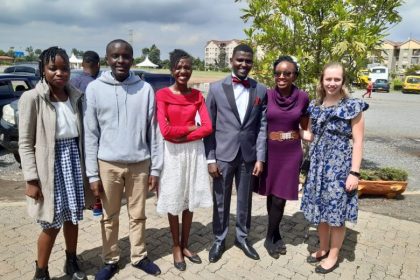
In the richness of His mercy, God has blessed us with opportunities for relationships. There are blessings in interacting with one another. What would the world be like if we, like Adam, had only animals around us? Who would even crack jokes for us, create memes and make those Indian tutorial videos on Youtube? Where would all the manufactured make-up go?
But how do we relate with each other, really? Our need for relationships is at times met with hatred and violence and we are left with pangs of loneliness and self-pity. We have many broken people around us. The world has changed some of us, causing us to exhibit behavior as that of villains. What would begin as a small misunderstanding would turn out to be a huge fight between two or more social beings who ought to be looking out for each other? People are out of tune when we really need them to resonate.
Being in full capacity human, we react swiftly in a negative way than we do positively to our tagged ‘villain’ neighbors. When we are frustrated, the heart rate, arterial tension and epinephrine production increases, and cortisol (the stress hormone) decreases, and the left hemisphere of the brain becomes more stimulated (SINC, 2010).
Our psychobiological responses are quicker than our logic patterns in response to people’s annoyance. Another common reaction is the auto-branding of people with an irrevocable tag. They are already condemned in our hearts; like a salty water river that has no hint of freshness in it. It is even more difficult if you can’t get rid of them. If you are taking instructions from them, you’d be thoroughly demotivated to undertake the tasks assigned. If they are esteemed by others, your brain has to go through a huge amount of clog to find the slightest good feeling about them.
The Grace Undeserved
But then Scripture keeps shouting about God’s grace here, His love and Mercy there, and many other attributes of His generosity all around us. His abounding kindness is beyond our exhaustion. God sees our disgraceful expressions of brokenness but in place of wrath, He gifts us with patience, the kind that according to Peter should quicken us to repentance.
For while we were still weak, at the right time Christ died for the ungodly. For one will scarcely die for a righteous person. God however demonstrated His love to us through that sacrifice. “While we were yet sinners Christ died for us.” (Rom 5:6-8). We have received such great mercy and grace in our Lord, why then do we deny it to our ‘offenders’?
It is true that what they do is not ‘fine’ and may never be ‘fine’ at all. But aren’t we equally broken and imposing our brokenness on others as well? Isn’t it easier to believe God’s justice against our offenders and great pardon for us? While I can’t find the best anthropological response aside from the problem of sin amongst us, I can only refer to God’s requirement for us in such circumstances. We are constantly reminded that a good tree bears good fruit. It is possible that some of our responses are out of what is abundant in our hearts.
When we feel stabbed in our hearts, it’s sometimes the wake-up call to check whether our hearts are guarded or not. Many at times we see how wrong others are and fail to see the same in ourselves. It is true that we have been cut deep by the claws of self-righteousness. Seeing someone at their brokenness would arouse variety of thoughts. Inwardly, we are thankful that those problems are not in us. It is as though we pat ourselves on the back and say, “congratulations for not being like that guy.” We start evaluating how excellent we are at things others struggle with and begin to enjoy the higher pedestal.
Embracing Transformation
But when we will begin to read God’s word without biasness, we will definitely realize God’s invitation to bear the fruit of the Holy Spirit even in how we relate with one another. Gentleness is difficult when we are burning with fire, even for justified distress. But God fills us with love, joy, peace, patience, kindness, faithfulness, humility and self-control to overcome the darkness inside of us. God does not show our brokenness to us for our condemnation but so that we can draw to Him for sanctification and hence transformation.
We can offload the pride that deceives us into self-righteousness to a merciful God. It is a perfect opportunity to pray for patience when someone is condescending on you. We can seek His guidance for self-control when we are in a ruthless exchange. When the Helper’s voice is louder than the deceiver’s speech, we begin a journey of liberation in the freedom of Christ. It is us that should seek God’s help before pursuing the ‘wellnesses’ of the offender. May God help us to be quick to listen, slow to speak, slow to become angry and above all to love one other.





How timely?! And true. May the Helper’s voice be ever louder than the deceiver’s speech. Thanks for the article
Thanks for this, it got me thinking about the times we don’t focus on ‘self’ amid broken relationships. We regard ourselves justified and condemn our ‘offenders’. May the fruit of the spirit be ingrained in us.